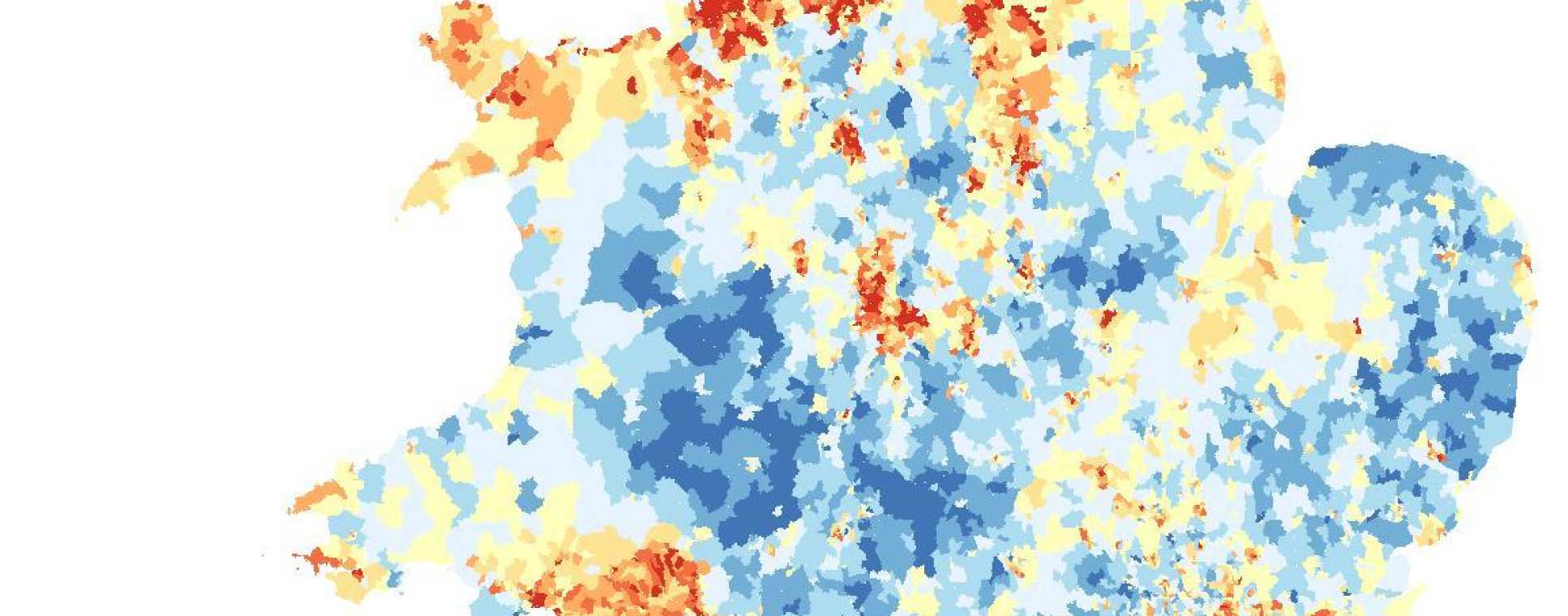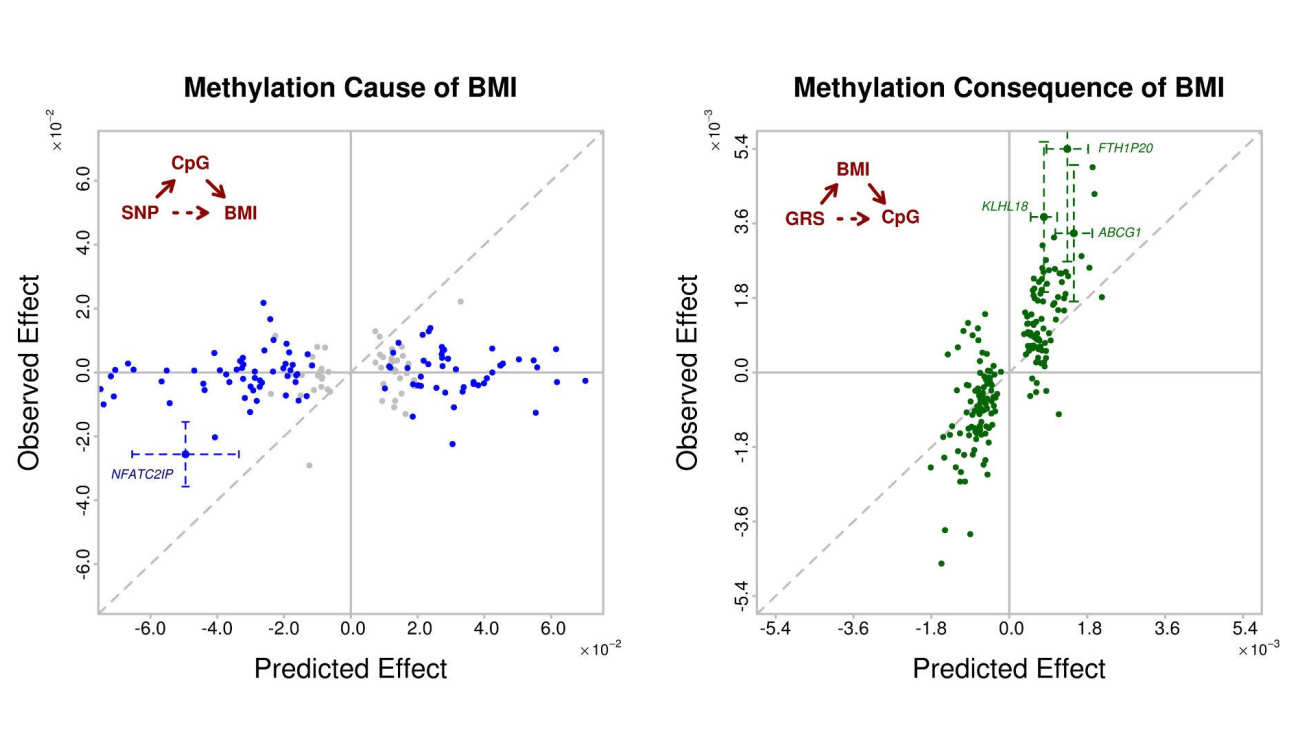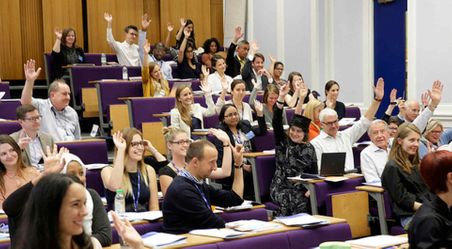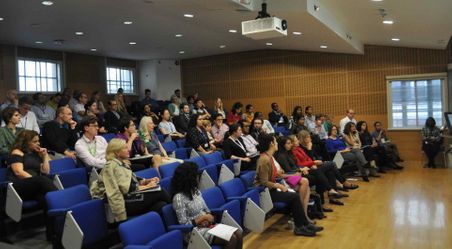
What do we do?
We develop and apply statistical machine learning and computational statistics methodology to answer biologically and epidemiologically-driven questions. We develop spatial and spatio-temporal models for disease mapping and for risk assessment and environmental exposure estimation. We use advanced statistical approaches to explore high-dimensional complex genetic, epigenetic, transcriptomic, proteomic and metabolomic datasets to model associations between genes and disease, identify features driving disease dynamics and progression, and to uncover corresponding cellular networks, pathways, and biomarkers.
How do we do it?
 We answer key statistical questions to address the above challenges by employing both Bayesian and Frequentist approaches. We develop computationally efficient methods for profiling from high-throughput platforms and fitting complex spatial and spatio-temporal models. We use Markov chain Monte Carlo approaches, shrinkage and regularisation methods, approximate Bayesian computation such as INLA and simulated likelihood methods, as well as non-parametric Bayesian models. In addition, we employ latent-variable models such as partial least squares and develop computational methods for high-dimensional model selection and signal identification.
We answer key statistical questions to address the above challenges by employing both Bayesian and Frequentist approaches. We develop computationally efficient methods for profiling from high-throughput platforms and fitting complex spatial and spatio-temporal models. We use Markov chain Monte Carlo approaches, shrinkage and regularisation methods, approximate Bayesian computation such as INLA and simulated likelihood methods, as well as non-parametric Bayesian models. In addition, we employ latent-variable models such as partial least squares and develop computational methods for high-dimensional model selection and signal identification.
Why is it important?
Advanced statistical methods are crucial for interpreting and making sense of modern complex biomolecular, epidemiological and environmental data. Modern biostatistical methods help to better understand the genetic structure of diseases, disease progression and pathways, and to study the impact of environmental exposures on chronic diseases.
People
James Bennett
/prod01/channel_3/media/migration/faculty-of-medicine/pwpimage--tojpeg_1496760748450_x4.jpg)
James Bennett
Statistical Manager
Marta Blangiardo
/prod01/channel_3/media/migration/faculty-of-medicine/Marta-Blangiardo--tojpeg_1496760406723_x4.jpg)
Marta Blangiardo
Senior Lecturer in Biostatistics
Dr Areti Boulieri
/prod01/channel_3/media/migration/faculty-of-medicine/profilepic--t_1523963751602_x1--tojpeg_1531913717390_x4.jpg)
Dr Areti Boulieri
Early Career Research Fellow
Marc Chadeau-Hyam
/prod01/channel_3/media/migration/faculty-of-medicine/Marc-Chadeau--tojpeg_1496760496180_x4.jpg)
Marc Chadeau-Hyam
Senior Lecturer in Biostatistics
Marina Evangelou
/prod01/channel_3/media/migration/faculty-of-medicine/Marina-Evangelou--tojpeg_1496760581672_x4.jpg)
Marina Evangelou
Lecturer in Biostatistics (joint with Mathematics)
Benjamin Lehne
/prod01/channel_3/media/migration/faculty-of-medicine/placeholder--tojpeg_1496760954953_x4.jpg)
Benjamin Lehne
Junior Research Fellow in Statistical Genetics
Deborah Schneider-Luftman
/prod01/channel_3/media/migration/faculty-of-medicine/Deborah--tojpeg_1496761073306_x4.jpg)
Deborah Schneider-Luftman
UK Medbio Fellow in Biostatistics
Sharing statistical knowledge

Postgraduate teaching
Members of our group are involved in MSc teaching and supervision:
- MSc in Epidemiology (School of Public Health) - Korbinian, Marc, Marina and Marta teach the Advanced Regression Analysis, Advanced Topics in Biostatistics, Bayesian Statistics and Spatial Analysis modules respectively
- MSc in Statistics (Department of Mathematics) - Marina teaches the MSC module Statistical Bioinformatics and Genetics

Short courses
Members of the group are responsible for organising a number of short courses:

Events and conferences
Members of the group are involved in the organisation of meetings, workshops and conferences. Recent events include:
/prod01/channel_3/media/migration/faculty-of-medicine/Sarah-Filippi--tojpeg_1496760680764_x4.jpg)
